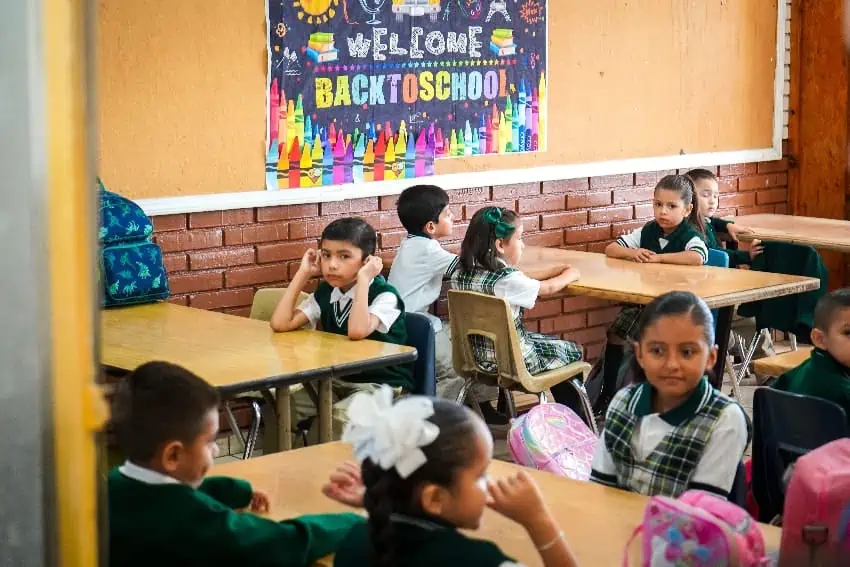Jenna Mayhew has been working as a psychologist in Mexico for eight years. At her practice, Hola Therapy, she has made it her mission to help foreigners living in Mexico, Mexicans with a foreign partner, foreigners with links to Mexico and Mexicans with links to foreigners or foreign countries.
Jenna answers MND readers’ questions on the pressing issues of relationships, mental health and navigating changes that come with relocating to and living in Mexico.

Dear Jenna,
I’m a 12-year-old guy from England. My mum is Spanish and we’re both bilingual. We moved to Mexico two years ago because of her job and now I go to a British international school in Monterrey. At school, the kids are divided into groups based on whether they speak Spanish or English.
It used to be easier to mix with both groups, but lately it feels like I have to choose one side or people think I’m being disloyal. Last week, someone from my main group of English-speaking friends told me that if I kept talking to my friends in the Spanish group, she and everyone else would stop talking to me. I’m stuck because I don’t want to only hang out with English speakers, but I also don’t want to lose my main friends. What should I do?
– Bilingual Student

Dear Bilingual Student,
School teaches us a lot, but one of the toughest lessons is how to navigate relationships. This is especially challenging in an international school, where you’re surrounded by many cultures and expectations. Of all the ugly ‘isms’ like racism, sexism, ableism and classism, school has its own ‘ism’: groupism. Although this kind of group exclusion might seem to diminish after graduation, it tends to pop up throughout life. We could argue it’s actually the master of all the ‘isms’. The silver lining? School can teach you about the kind of friends you want to have and the kind of friend you want to be and gives you lots of opportunities to practice this.
I understand that you’re worried about losing your friends if you continue to interact with your Spanish-speaking friends. That’s a tough spot to be in. But here’s the key point: no friend should dictate who you can or cannot be friends with. True friends don’t force you to choose between them and someone else. They don’t isolate or threaten you. They don’t push you to abandon your values.
We could easily argue that excluding people based on their native language is morally wrong. I wouldn’t disagree. However, standing up for yourself now is about more far than just doing the right thing. It’s also about how you allow others to treat you and how you respect yourself. This is your chance to practise making decisions based on your own values, not someone else’s expectations. Think of this skill as a muscle — you have to work it out in order for it to grow and become strong. Developing this ‘muscle’ of self respect now will positively impact your life in countless ways.
Yes, you might face some tough consequences, like losing friends. But by sticking to your values and sticking up for yourself, you’ll ultimately gain far more. So stand tall, speak to whomever you wish and if any friends choose to leave over it, then good riddance. Consider it a step towards finding new, more supportive friends. Good luck, and remember, better connections await you.
Jenna Mayhew is an Australian psychologist based in Mexico, with over 20 years of experience in Australia, England and Mexico. She is the founder of Hola Therapy, a bilingual practice dedicated to supporting the immigrant and cross-cultural communities in Mexico and provides therapy in-person and online across Mexico and worldwide. Jenna’s work combines her extensive expertise with a deep commitment to addressing the unique challenges faced by individuals in diverse cultural settings.
